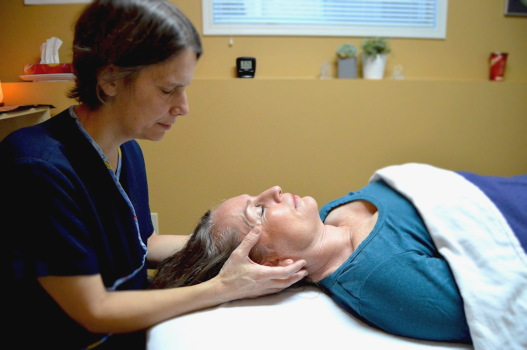Craniosacral therapy (CST) is one of the safe, alternative therapies the BART Foundation believes may help brain injury survivors. The BART Foundation aims to promote better outcomes for TBI/ABI survivors by answering three questions: Which alternative therapies are likely to work, where can they be found, and how can they be afforded? One way we fulfill our mission is by carefully watching global research and clinical trial outcomes and sharing that information in user-friendly language with the TBI/ABI community.

While this article from BMC Musculoskeletal Disorders is a few years old, it provides a systematic review and meta-analysis of randomized controlled trials involving craniosacral therapy for treating chronic pain. Derived from osteopathic manipulative treatment, CST consists of mindful, non-invasive fascial palpation techniques applied between the cranium and sacrum. While the specific mechanisms of CST are still understudied, clinical trials have shown preliminary evidence for CST to improve patient-reported outcomes.
PubMed, Central, Scopus, PsycINFO, and Cinahl were searched for randomized controlled trials (RCTs) assessing the effects of CST in chronic pain patients. Ten RCTs of 681 patients with neck and back pain, migraine, headache, fibromyalgia, epicondylitis, and pelvic girdle pain were included. Three studies originated in the United States, with others from Spain, Poland, Iceland, Sweden, and Germany. CST showed greater post-intervention effects on pain intensity and disability compared to treatment as usual, a manual/non-manual sham treatment, and active manual treatments. Sensitivity analyses revealed robust effects of CST against most risk of bias domains.
Discussion
This meta-analysis suggests that CST has significant and robust effects on pain and function in patients with chronic pain lasting up to six months. More RCTs are needed to further corroborate the effects and safety of CST on chronic pain.
